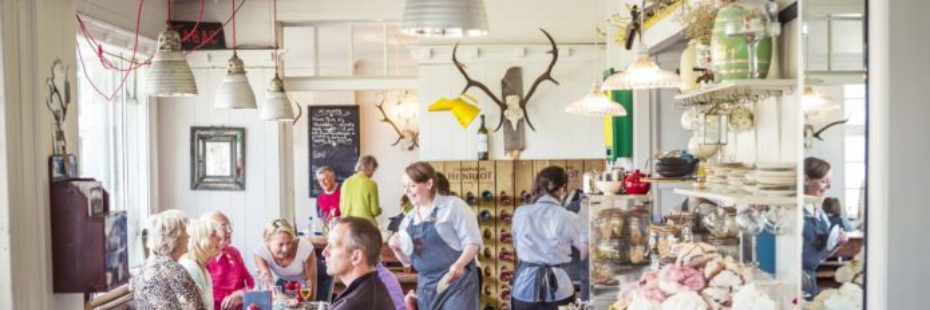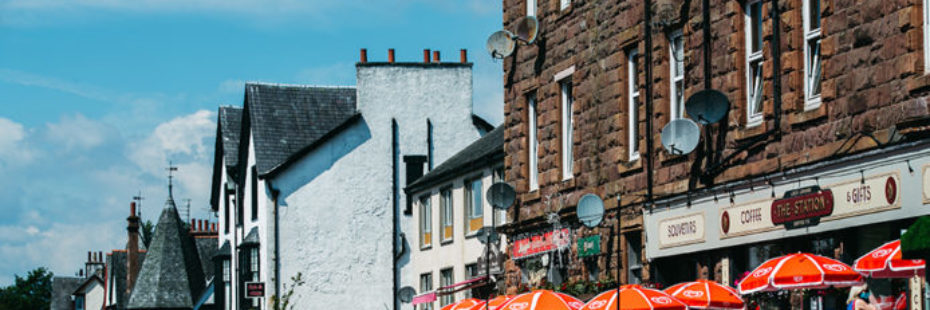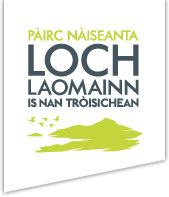
Preventing Waste
Every business generates waste. For some, it may be only waste paper or dirty water; for others, it may be food or hazardous or toxic materials. Whatever the type or volume of waste your business generates, it makes sense to minimise this as much as possible both for the environment and for your finances.
There are also legal requirements around how your businesses disposes of waste. For example, under the Waste (Scotland) Regulations 2012 all businesses, not-for-profit organisations and public sector bodies must take all reasonable steps to separate the target dry recyclable materials (i.e. glass, metals, plastics, paper or card, including cardboard) from the rest of their waste for collection. Food businesses which produce over 5kg of food waste per week must also take all reasonable steps to ensure their food waste is separately collected.
Advice for hospitality and catering businesses

Mhor 84
Food waste is a key contributor to climate change, if food waste and loss were a country, it would be the third-largest greenhouse gas emitter after China & USA!
Food waste currently costs Scottish hospitality businesses £215million a year, that’s the equivalent of 1.3 billion meals being discarded annually, meaning 1 in 6 meals served ends up going to waste. Filling just one food waste wheelie bin every week, costs you £12,500 a year. For every dish you prepare, you’re creating £1 worth of food waste, this is in addition to ‘plate waste’ that comes back from customers and staff costs for preparing food, distribution, packaging and utilities.*
As you can see the cost of food waste to Scottish hospitality businesses is far greater than we might first imagine and presents a noticeable cost-saving opportunity.
Developing a food waste reduction strategy is quick and easy to do, the key areas to focus on are:
- Target: Set the target for how much you would like to save. All strategies have a goal. Set a target for how much your business would like to save on food waste
- Measure: Where is the food waste coming from and in what volume? Weigh it daily and record the information on a seven-day tracker to enable you to build up a full picture
- Act: Take action and ensure the whole team are on board. Actions can include: reducing portion sizes; cooking to order; removing less popular dishes from the menu; and forecasting demand
For further guidance and support, go to Zero Waste Scotland
Free support and advice to businesses includes:
- A food and drink opportunity assessment – to identify where and how savings can be made
- A comprehensive report – detailing key actions you can take, quantifying how much money you could save and how to access support and financing
You can apply for a free food and drink opportunity assessment by emailing: food.drink@zerowastescotland.org.uk
* Source Zero Waste Scotland
Advice for self-catering & accommodation providers

Aberfoyle Main Street
It is expected that all key recyclable waste streams generated by self-catering accommodations are separated for collection and recycling.
As a guide the following non- exhaustive list of waste streams should be targeted.
- Internal Segregation – Facilities for guests to recycle glass, metal, plastic, paper and cardboard
- Labelling – Recycling facilities should be adequately labelled to avoid contamination of recyclables and general waste, use the free online poster creator tool to help guests recycle effectively
- Monitoring – Check periodically for contamination and make improvements where necessary
- Location – Recycling facilities should be co-located with general waste collection facilities
- Communication – Accommodation owners should communicate effectively with their guests, for example guests checking in or picking up keys should be informed of recycling/waste disposal requirements. This could be included in your welcome pack/house rules
- It is recommended that clear bags are used for the sack collection of recyclable material in order to facilitate a visual quality check.
Information that may be useful for guests:
- Bin collection day /time
- Bin collection point
- Where bins are stored
- What goes in each bin
- Where spare liner are kept
- Any other waste info – washing containers, encouraging recycling!
There is an exemption to the food waste segregation requirement and disposal to sewer ban for premises situated in rural areas. To check whether your premises are defined as rural for the purposes of the Regulations use this Rural Postcode search.
Circular Economy
The circular economy is a concept where everything has value, and nothing is wasted. In simple terms, it can be explained as ‘make, use, remake’ as opposed to the linear system of ‘make, use, dispose’.
With a circular economy approach, resources are kept in use for as long as possible, the maximum value is extracted from them whilst in use and then the products and materials are recovered at the end of each product’s viable life cycle.
The Circular economy policy in Scotland was set out in ‘Making Things Last’ (2016), one of the first national circular economy strategies in the world. Since then Scotland has set some ambitious targets to progress its circular economy journey. You can help play your part too.
Every business is different. Moving to a circular business model can sometimes be about making a few small changes that can make a huge difference in the long run. Visit the links below to learn more about the options available and how Circular Economy experts can support you to get there.

